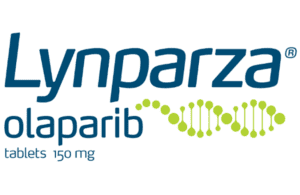 Lynparza (olaparib) significantly reduced death risk when treating germline BRCA-mutated high-risk early breast cancer in the Phase 3 OlympiA study, according to AstraZeneca (LON: AZN).
Lynparza (olaparib) significantly reduced death risk when treating germline BRCA-mutated high-risk early breast cancer in the Phase 3 OlympiA study, according to AstraZeneca (LON: AZN).
Lynparza recently became the first FDA-approved medicine targeting BRCA mutations in the same type of cancer.
The drug is the first poly(ADP-ribose) polymerase (PARP) inhibitor to show an overall survival benefit in early breast cancer, according to AstraZeneca.
AstraZeneca developed the drug with Merck & Co. (NYSE:MRK), a company known as MSD outside of the U.S.
The OlympiA study showed that olaparib had a statistically significant and clinically meaningful improvement in overall survival (OS) compared to placebo in the adjuvant treatment of patients with germline BRCA-mutated (gBRCAm) high-risk human epidermal growth factor receptor 2 (HER2)-negative early breast cancer.
Patients in the study had received earlier local treatment and standard neoadjuvant or adjuvant chemotherapy.
Participants in the trial who received Lynparza had a three-year survival rate of 92.8% compared to 89.1% for those receiving placebo.
Earlier data from the OlympiA trial were published last year in NEJM.
“OlympiA has now shown that olaparib not only reduced the risk of recurrence but also improved overall survival for women with high-risk early-stage breast cancer and a BRCA1/2 mutation and is an exciting demonstration of the benefits of targeting the specific biology of disease for these women,” said Professor Andrew Tutt, global chair of the OlympiA study, in a statement.
Now approved for ovarian cancer, prostate and pancreatic cancer, Lynparza is also the subject of Phase 3 trials focused on colorectal, endometrial, lung and squamous cell cancers.
In related news, Merck recently announced that it was stopping the KEYLYNK-010 Trial testing Keytruda (pembrolizumab) with Lynparza (olaparib) in patients with metastatic castration-resistant prostate cancer owing to futility.